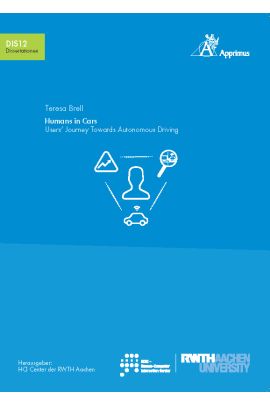Autonomous driving may be one of the key technologies and significant developments that will influence and shape our future mobility and quality of life.
Various global challenges like the demographic change, increasing CO2 emissions and the ongoing urbanization are addressed through government programs, European contracts, and worldwide debates.
They all follow one goal: To confront and address these challenges through social and technological developments. Particularly in the field of mobility, there are many opportunities to improve current and future conditions in traffic and transport: Increase safety, efficiency, and comfort, enhance integration of various population groups in mobility concepts, reduction of emissions, and prevention of (fatal) accidents.
The technical development of driver assistance systems has made steady progress so far and has already achieved a number of breakthroughs. Thanks to connected, partly intelligent assistance systems, drivers are already being assisted in many situations and the falling rate of traffic accidents confirms this positive development. However, these – albeit reduced – numbers are still far from the goal of zero accidents.
The next stages in the development of driver and vehicle technology could bring us an enormous step closer to this goal. The opportunities presented by technology make it possible to involve and participate more intensively in a wide variety of user groups. It is therefore extremely important to involve future user groups directly in technology development in order to enable their acceptance and subsequent usage.
This work is therefore an important contribution to the inclusion of the socio-psychological perspective on autonomous driving and evaluates holistic opportunities and barriers for the introduction to daily mobility. With a multi-tiered research concept, research questions towards opportunities and barriers of the technology are answered and discussed. A thematic deep-dive in data security and privacy shows the dependency of the traffic situation and context of technology usage. Further, a comparison of different driving technologies shows the technology influence of risk perception of diverse user groups.
The lessons learned:
The meta-view on user-diversity shows the situational, contextual and technological dependency. An overall agreement and intention to drive autonomously has been identified, as well as the individual attitude towards privacy as the biggest obstacle.
| Autor | Brell, Teresa |
|---|---|
| Lieferzeit | 3-4 Tage |
| Gewicht | 0.35 kg |
| Erscheinungsdatum | 05.11.2019 |
Dissertationen
Humans in Cars. Users’ Journey Towards Autonomous Driving
Kurzbeschreibung
On this journey, an awareness of the major mobility challenges was raised. In future, the intelligent vehicle technologies will represent new solutions for more mobility, safety, and efficiency in road traffic. The aim of this work is to identify and quantify user factors relevant for technology acceptance with a multi-stage empirical procedure. The simultaneous examination of the automation level, the situation, and the context, established that a requirement-oriented mobility must create individual offers with a transparent communication and information strategy.

